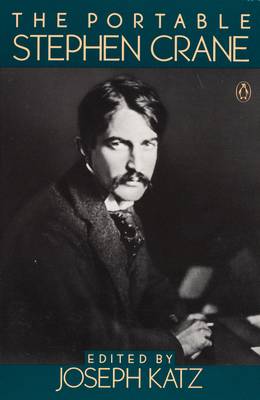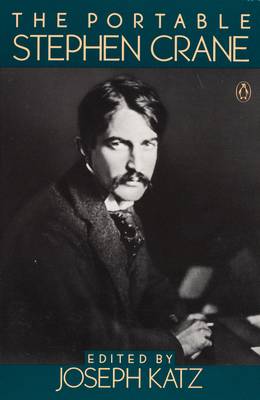
- Retrait gratuit dans votre magasin Club
- 7.000.000 titres dans notre catalogue
- Payer en toute sécurité
- Toujours un magasin près de chez vous
- Retrait gratuit dans votre magasin Club
- 7.000.000 titres dans notre catalogue
- Payer en toute sécurité
- Toujours un magasin près de chez vous
37,45 €
+ 74 points
Description
"A man is born into the world with his own pair of eyes, and he is not responsible for his vision--he is merely responsible for his quality of personal honesty." In the course of his tragically abbreviated career, Stephen Crane (1871-1900) saw things that his contemporaries preferred to overlook--the low life of New York's Irish slums; the tedium, brutality, and chaos that were the true conditions of the Civil War; the ambiguous contract that binds a terrified man to his killer and the damned to their human judges. He communicated what he saw with the same laconic factuality that characterized his journalism and, in the process, laid the foundations for the unblinking realism of Hemingway and Dos Passos. The Portable Stephen Crane allows us to appreciate the full scope and power of this writer's vision. It contains three complete novels--Maggie: A Girl of the Streets, George's Mother, and Crane's masterpiece, The Red Badge of Courage; nineteen short stories and sketches, including "The Blue Hotel" and "The Open Boat," a barely fictionalized account of his own escape from shipwreck while covering the Cuban revolt against Spain; the previously unpublished essay "Above All Things"; letters and poems, plus a critical essay and notes by the noted Crane scholar Joseph Katz.
Spécifications
Parties prenantes
- Auteur(s) :
- Editeur:
Contenu
- Nombre de pages :
- 576
- Langue:
- Anglais
- Collection :
Caractéristiques
- EAN:
- 9780140150681
- Date de parution :
- 28-07-77
- Format:
- Livre broché
- Format numérique:
- Trade paperback (VS)
- Dimensions :
- 127 mm x 196 mm
- Poids :
- 453 g







